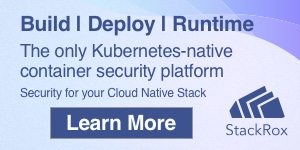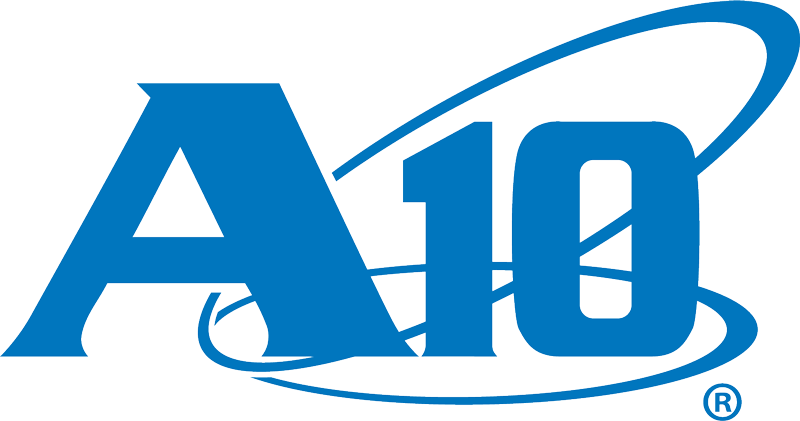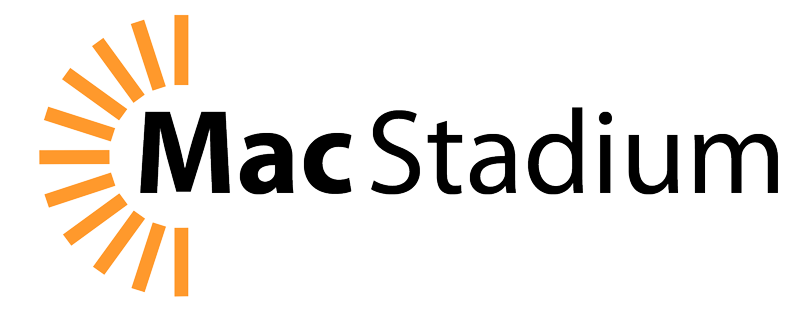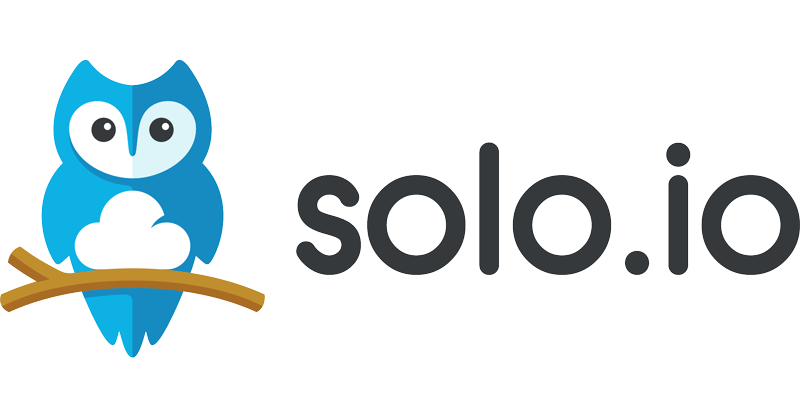The Cloud Native Computing Foundation’s flagship conference gathers adopters and technologists from leading open source and cloud native communities in San Diego, California from November 18-21, 2019. Join Kubernetes, Prometheus, Envoy, CoreDNS, containerd, Fluentd, OpenTracing, gRPC, rkt, CNI, Jaeger, Notary, TUF, Vitess, NATS, Linkerd, Helm, Rook, Harbor, etcd, Open Policy Agent, CRI-O, and TiKV as the community gathers for four days to further the education and advancement of cloud native computing.
RackN at KubeCon 2019 - Next Gen Infrastructure Automation
Written by Brian Ducharme
VMblog visits RackN during KubeCon 2019 in San Diego.
Learn more about RackN and how they are helping to change the economics of the data center. They are building upon their open source project, Digital Rebar, and developing next generation infrastructure automation software for provisioning bare metal, VMs, clouds, and edges. And with that, they are also able to make Kubernetes deployments much more stable and predictable at the same time.
A10 Networks at KubeCon 2019 - Application Delivery and Security
Written by Brian Ducharme
VMblog visits the A10 Networks booth during KubeCon 2019 in San Diego.
DevOps, NetOps & SecOps are finding it challenging to manage application delivery and security across the multi-cloud. A10 Networks demonstrates solutions that will simplify these challenges whether your applications are on-premises, hybrid environment, multi-cloud, containers or in a Kubernetes environment.
Rancher at KubeCon 2019 - Deploy and Manage Kubernetes at Scale
Written by Brian Ducharme
VMblog visits the Rancher booth during KubeCon 2019 in San Diego.
Rancher is a complete software stack for teams adopting containers. It addresses the operational and security challenges of managing multiple Kubernetes clusters across any infrastructure, while providing DevOps teams with integrated tools for running containerized workloads.
Platform9 at KubeCon 2019 - Simplify Operational Burden of Delivering Kubernetes at Scale
Written by Brian Ducharme
VMblog visits the Platform9 booth during KubeCon 2019 in San Diego.
Platform9 Managed Kubernetes (PMK) is a Kubernetes service that ensures fully automated Day-2 operations with 99.9% SLA on any environment: in data-centers, public clouds, or at the edge.
Their unique SaaS Management Plane remotely monitors, optimizes and heals your Kubernetes clusters and underlying infrastructure. With automatic security patches, upgrades, proactive monitoring, troubleshooting, auto-healing, and more -- you can confidently run production-grade Kubernetes, anywhere.
Alluxio at KubeCon 2019 - Open Source Data Orchestration Platform for the Cloud
Written by Brian Ducharme
VMblog visits the Alluxio booth during KubeCon 2019 in San Diego.
Alluxio is a data orchestration platform that works with Kubernetes. They enable elastic data for elastic compute with tight locality in K8s, meaning you can cache data close to compute, enable high-speed data sharing across jobs, and orchestrate data across storage systems.
Alluxio moves data seamlessly (no management overhead) from remote data silos from cloud stores like S3, or file systems like HDFS, into your K8s cluster for tighter data locality (fast performance) and highly elastic data access for your elastic compute within K8s.
MacStadium at KubeCon 2019 - Orka Virtualization Layer for Orchestrating macOS
Written by Brian Ducharme
VMblog visits the MacStadium booth during KubeCon 2019 in San Diego.
MacStadium is showing off Orka, a new virtualization layer built specifically for orchestrating macOS in a cloud environment using Kubernetes on genuine Apple Mac hardware.
Orka (which stands for Orchestration with Kubernetes on Apple) brings powerful containerization and orchestration tools like Docker and Kubernetes to iOS and Mac app developers and the DevOps teams that support them. Orka was recently launched in August 2019.
Blameless at KubeCon 2019 - Complete Site Reliability Engineering (SRE) Platform
Written by Brian Ducharme
VMblog visits the Blameless booth during KubeCon 2019 in San Diego.
Blameless offers an industry leading go-to platform for SRE professionals. Blameless’s complete SRE platform enables enterprise customers to automatically analyze and optimize business risks and outcomes, resulting in the right balance between reliability and innovation.
Blameless has a uniquely strong emphasis on incident prevention. They have built a seamless SRE workflow into one easy to use product. So whether you are a VP of engineering, an SRE manager, or an SRE, Blameless can help you better prioritize your work and make your job easier.
StackRox at KubeCon 2019 - Next Gen Kubernetes Native Container Security
Written by Brian Ducharme
VMblog visits the StackRox booth during KubeCon 2019 in San Diego.
At the show, StackRox showcased how their deep integration with #Kubernetes delivers the next generation in container security to address a company's most critical security needs.
StackRox is a Kubernetes-native container security platform that leverages Kubernetes' declarative data and built-in controls for richer context, native enforcement, and continuous hardening. Their focus on Kubernetes helps DevOps and Security teams operationalize security across the full container lifecycle - build, deploy, and runtime. As a result, customers can enable security that's built in, not bolted on, realizing the power of security as code.
More...
Solo.io at KubeCon 2019 - Cloud-Native Applications and Service Mesh
Written by Brian Ducharme
VMblog visits the Solo.io booth during KubeCon 2019 in San Diego.
Solo.io is a software company that helps organizations adopt and operate innovative cloud native technologies like microservices, serverless and service mesh. They have open source and commercial technology like Gloo, a modern Envoy Proxy based API Gateway, Squash for debugging microservices, GlooShot for chaos engineering and Service Mesh Hub for installing, discovery and operation of any service mesh.
Solo.io wants to help other people use coud-native and distributed systems in their organizations without having to worry about lock-in or be forced to only use one vendor. They provide organizations with tools that are agnostic to application type, language, infrastructure, service mesh, because the reality is that many companies have very diverse IT portfolios and it will only grow as they add new technologies to their existing environment.
DivvyCloud 2020 Predictions: Cybersecurity and Data Privacy Trends in 2020
Chris DeRamus, CTO and co-founder, DivvyCloudIndustry executives and experts share their predictions for 2020. Read them in this 12th annual VMblog.com series exclusive.
StackRox Kubernetes Security Platform 3.0 Introduces Advanced Features and New Workflows for Configuration and Vulnerability Management
Written by David MarshallJust ahead of the start of KubeCon 2019 next week, StackRox is announcing the release of version 3.0 of its StackRox Kubernetes Security Platform. The company is introducing a number of new capabilities with this upgrade, enabling its customers to better harden their Kubernetes and container environments.
A Multi-Cloud Strategy for Kubernetes Security
Anjali Khatri, Enterprise Cloud Architect, DivvyCloudKubernetes is an open-source, extensibility platform. DivvyCloud, a multi-cloud security, compliance, and governance platform, can help companies understand and identify excessive cloud risk. Organizations need to take a holistic approach to Kubernetes security and consider both the infrastructure, container runtime, network, metrics, and observability environments for managing and scaling Kubernetes clusters, as both are fundamentally intertwined.
















